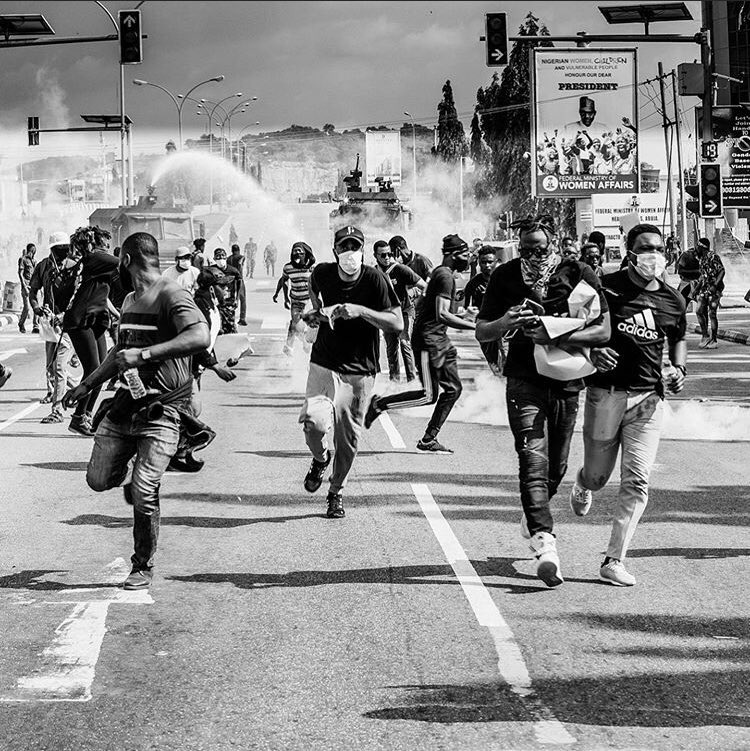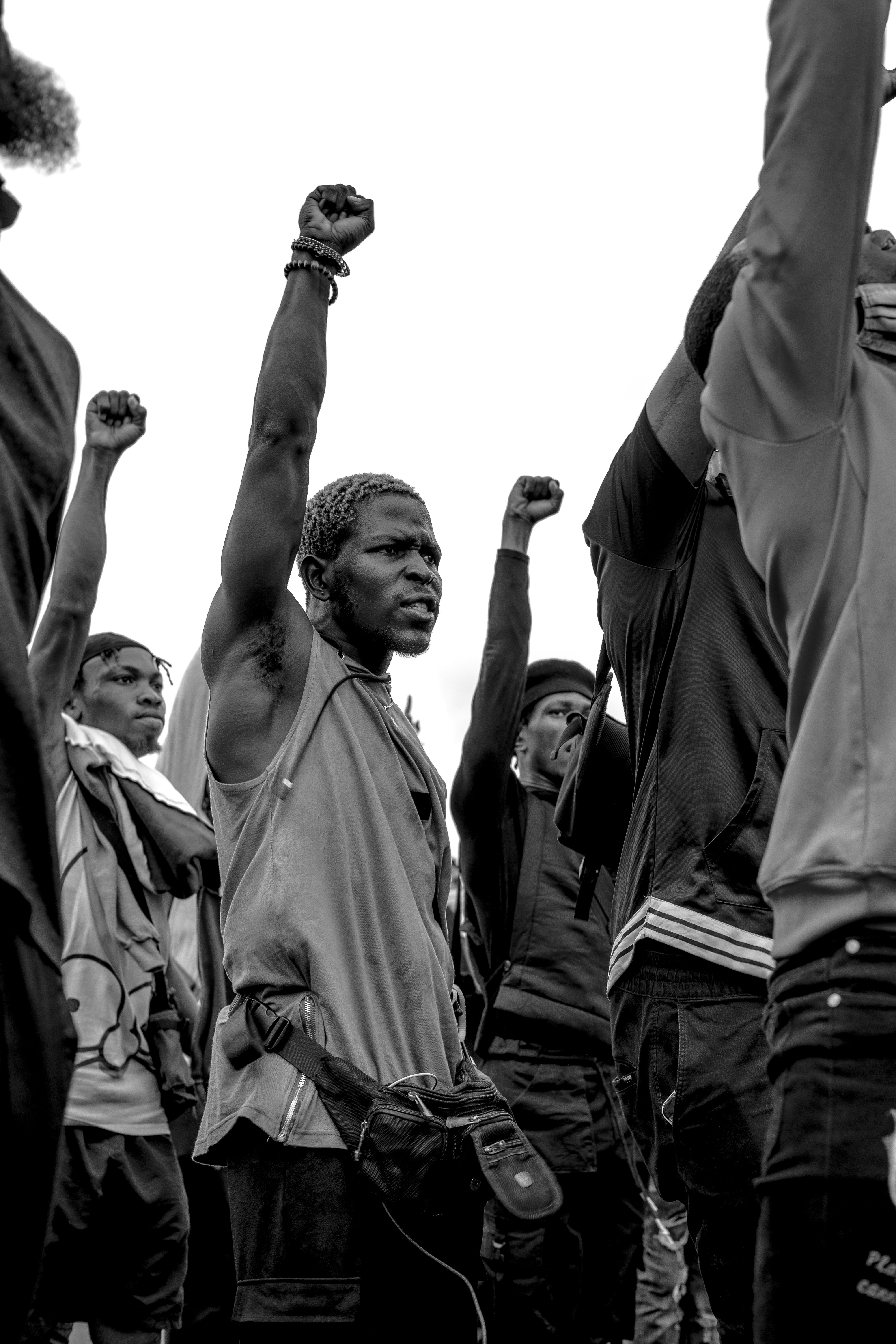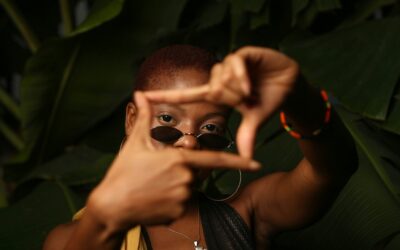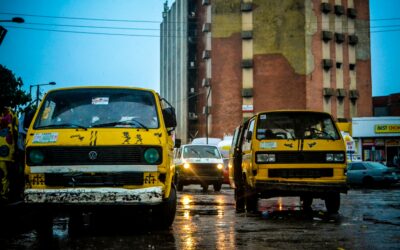If anyone were to start a discussion about human rights popular names who fought against all odds would be mentioned like, Nelson Mandela, Maya Angelou, Malcolm X, and Martin Luther King (of course). Back then there was no such thing as the internet and definitely no social media platforms to reach a global audience. So these movements had to be carried by mainstream media and of course good old word of mouth. One can only imagine the number of views the Martin Luther King “I have a dream speech” would have if it was live-streamed.
However, in today’s fight for human rights and justice one tool stands head and shoulders above others on the internet…that tool is social media.
In the past decade or so as social media has become part and parcel of daily life, it’s of no surprise that these platforms we use religiously are the very ones that gift people the ability to fight the powers that be on a totally different playing field to the Malcolm X days.
Social media platforms really are one of the champions of the human rights battle.
To support the statement above this article will focus on a particular battle that happened/ is still happening in West Africa, Nigeria to be specific, called the ENDSARS movement.
Before we start, here are some interesting and useful facts about Nigeria:
- Nigeria is one of the youngest countries in the world with more than 60% of the population under the age of 24.
- It is the most populated in the whole of Africa boasting a population of over 200 million people.
- Nigeria is predicted to have over 400 million people by 2050 (which seems right around the corner)
The ENDSARS movement is an anti-police brutality movement against the Special Anti-Robbery Squad (Sars), that aims for every Nigerian citizen the right to live freely in society without being harassed and sadly more times than not killed by the police force.
Now that some ground knowledge has been shared we can pivot back to how social media has helped amplify the voices of the unheard in Nigeria.
(Disclaimer: In this article the “Protesters” will at times have a powerful “P” and “nigerian government” a negligible “n”)
Smile… you’re on social media
On the 1st of October 2020, Nigeria celebrated 60 years of Independence. The celebrations were mainly from the diaspora who live in countries which though face trials and tribulations, are only a drop in the ocean compared to what those in Nigeria face.
The Endsars movement had been going on for several years but it was really around this time that as the world began mass protesting for various domestic and unified police brutality reasons (George Floyd), Nigerians really gained momentum with theirs against Sars and the Nigerian Government.
A viral video of an innocent Nigerian being killed sparked nationwide upset. Protests took place across Nigeria but probably a key area was in Lekki, Lagos city (one of the most populated cities in the world). The protests lasted for close to two weeks, with large crowds gathering at the popular Lekki toll gate chanting and demanding their voices heard.
The protests were peaceful and though the nigerian government called them “thugs” and “youths high on drugs” live footage from the protests tells a different tale.
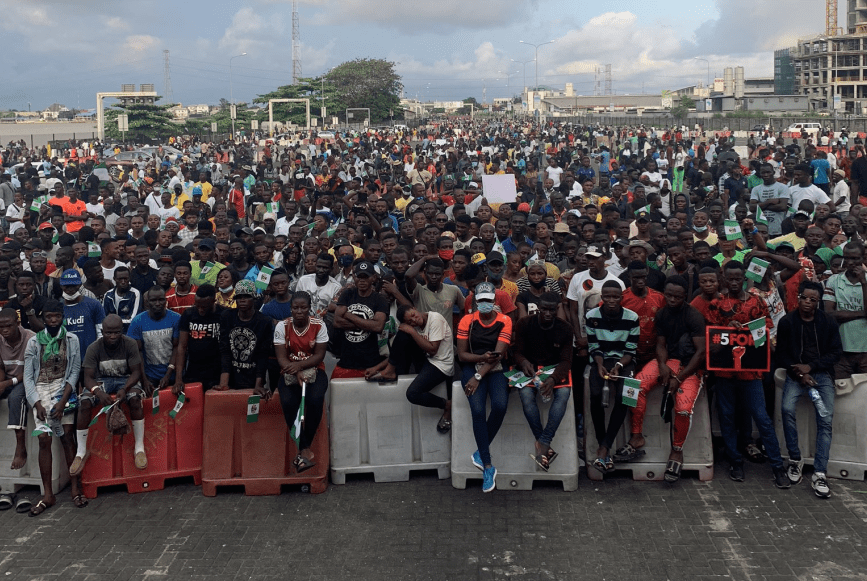
Lekki protesters
However, despite protesters coming in peace, on Oct 20th the police brutally massacred innocent protesters with armed rifles killing way over 39 people (that mainstream media report) and permanently injuring many more. Accounts from people who miraculously survived say the figure is close to 100. All of this… was live-streamed on social media.
It’s of no surprise that social media platforms are the first to know when it comes to these sorts of events and one can argue they at times know and hold a bit too much. An example would be, New Zealand’s Christchurch mosque terrorist shooting in 2019 that was live-streamed on Facebook before it was taken down.
Another example is the Munich shootings on 22nd July 2016, this too was live-streamed and tweeted about way before the media could get hold of any footage or even have any clue on what was going on.
The ability for people to in a split second bring out their smartphones, press record and it be shown to millions across the globe has really changed the way news is being reported. These live stream graphic contents have forced social media platforms to take a more serious approach when it comes to filtering content and deciding what gets shown and what doesn’t.
Questions have been raised about the power social media platforms hold by being able to just block or remove content entirely. Does that mean they can essentially dictate the direction of information and maybe even political decisions? Wouldn’t that change them to a publishing company instead if they are deciding what is real and what isn’t? (Another question for another day perhaps)
An interesting case study by Vox Pol highlights the trends of attacks being live-streamed and why people go to these platforms to get more of a reaction.
The Big Three
Narrowing down on social media platforms, of course, the big names like Facebook, Instagram, Twitter come to mind but do all platforms play a similar role when it comes to fighting for justice? In the case of the End Sars protest did they all play an equal role?
Out of these three, Twitter arguably deserves the MVP if there is an award for its tremendous work of allowing freedom of speech and content to be shared without falsely flagging it as “fake news”. Twitter in fact played such a central part, that even protesters who needed help with legal affairs reached out to certain users to get assistance.
One of the best tweets perhaps was the sheer accountability and clarity of where crowdfunded funds were being spent daily by twitter users such as @Feminist_co and @Fkabadu was a dream come true.
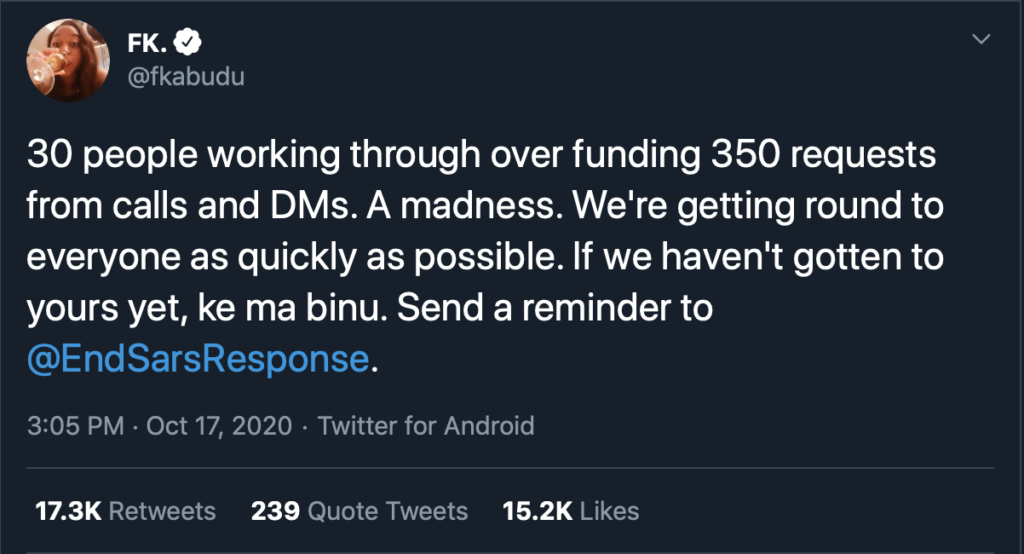
Tweet by @Fkabadu
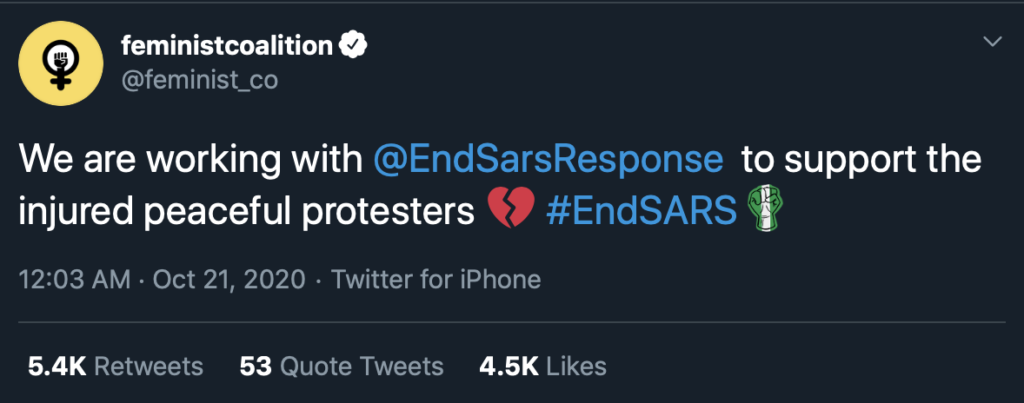
Tweet by @Feministcoalition
Twitter works on live updates and during the protests live information connecting those on the ground to those online was paramount to the protests running smoothly. Frontline Protesters were able to get amenities like free airtime credit for data, financial support in the form of bitcoin a cryptocurrency, and even food and drinks (Jollof rice and meat Pie).
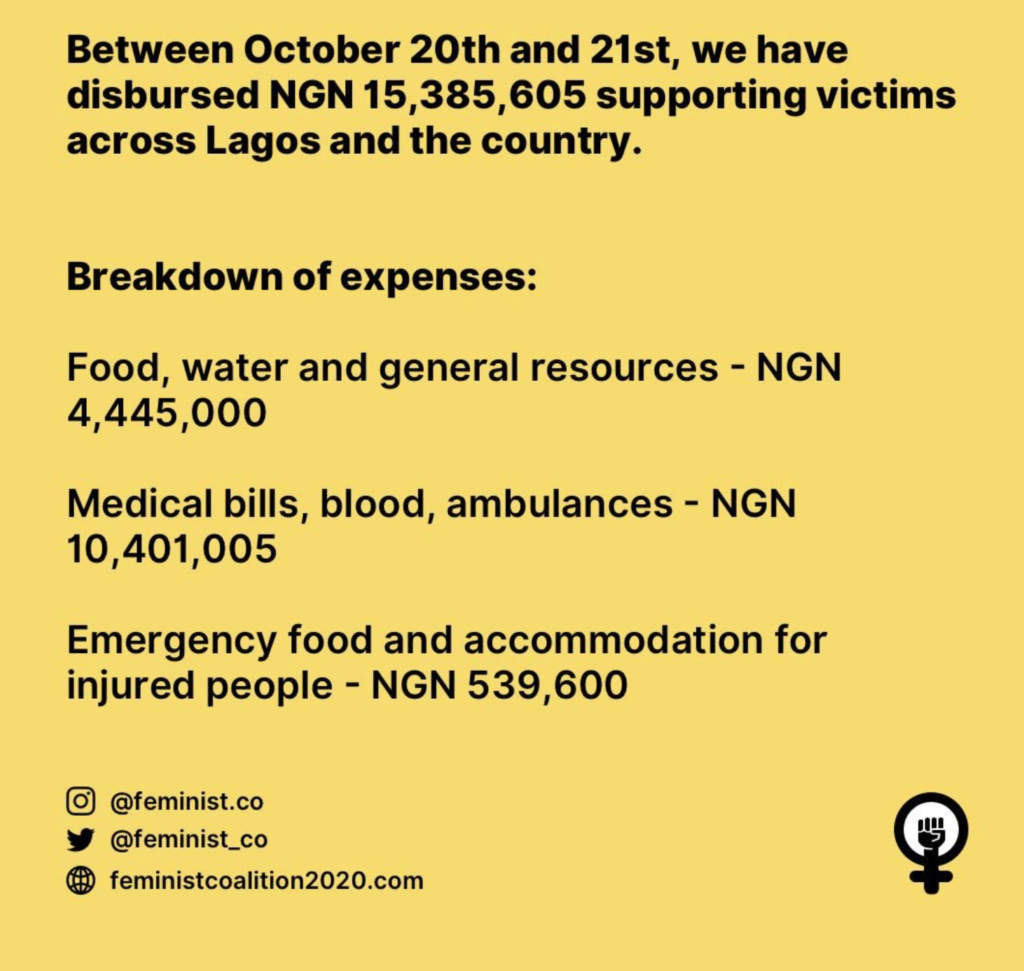
Tweet by @Feministcoalition
Imagine if the Nigerian government provided such transparency on money being spent… one can only wish.
Moving over to Instagram perhaps one of the most famous voices of the whole movement was DJ Switch, A Nigerian entertainer turned activist who used her platform not only to raise awareness but actually live-streamed the shootings as they happened…yes… live streamed.
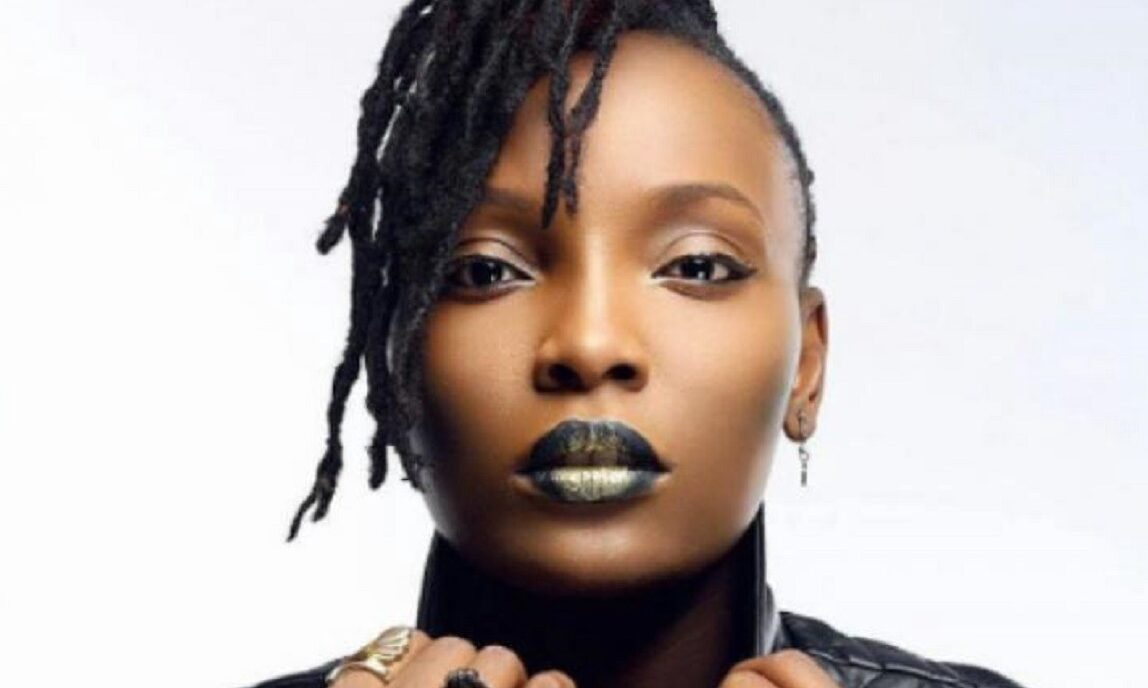
DJ Switch
Facebook the largest social media platform boasting a user base of over 2 billion, held its own when it came to sharing of information just by its sheer size and reach. Though, from a personal standpoint it was not as prominent as Twitter or Instagram, maybe because younger people just don’t use Facebook as much… who knows. (Though this might differ from you, so vote or comment below which one you think deserves the most credit).
It would be incorrect to say it didn’t contribute towards the End Sars movement so it is being mentioned here.
Trending topics on Twitter for several days were focused on Nigeria with topics such as #ENDSARS, #EndPoliceBrutality, and #BuhariHasBeenABadBoy which was turned into a song by protesters across the globe.
The impact outside Nigeria
Celebrities spoke out against the actions of the nigerian government which fueled the movement but probably way more important, were the similar acts of protesting in other countries where Nigerian diasporas call home. Similar toned protests began in the UK, Canada, USA, Sweden, and even India to help shed light on the situation from international bodies. Social media again was at the forefront of spreading awareness.
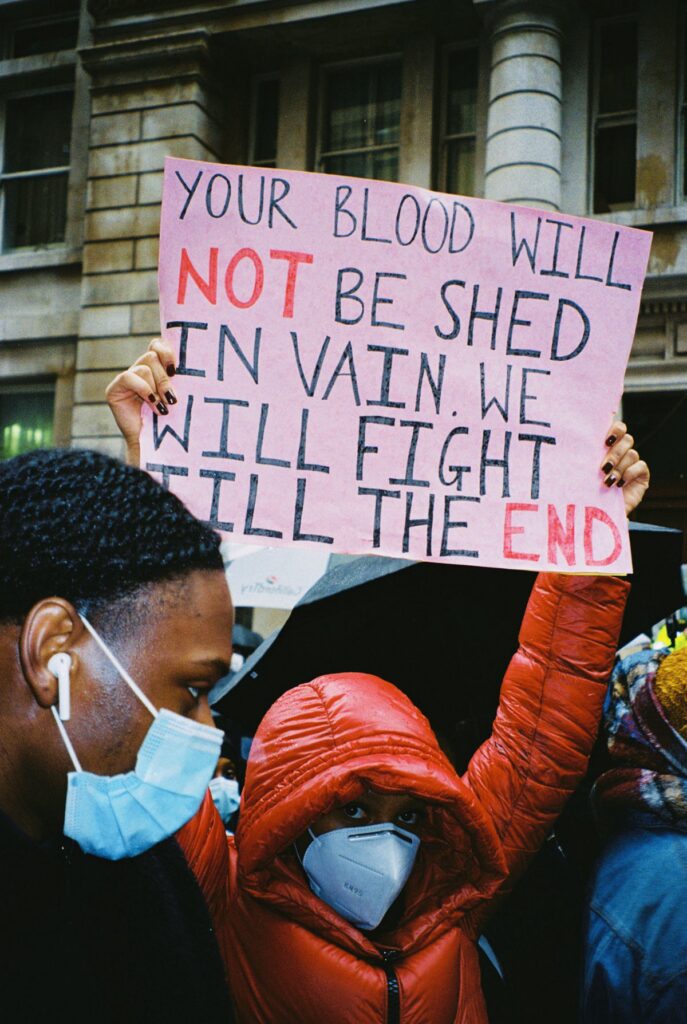
Taken by Bazzillionare
If it wasn’t for these social media platforms, the protests would have struggled to be broadcasted by mainstream media and perhaps not even have happened in the first place, as the diaspora would have had no clue of what’s happening if they relied solely on mainstream media for information.
So what attributed to social media’s central role in helping the End Sars movement become global? Could the age of the Nigerians have been anything to do with the successful use of social media to help its fight against police brutality?
Perhaps, as if this took place in an aging population like Japan for example where 30% of the population are over the age of 65 it is hard to believe they would have the energy to tweet let alone protest or know the workarounds of how to use the platform. Though of course, it would be the younger generation who would do the leg work roughly 36% are between 25 -54 but there is a huge difference in social media usage the older one gets the less they use it.
Instagram came under scrutiny from users when it blocked live-streamed footage of protesters and other local residents literally being shot at by the police. It decided this was “not verified” or in other words “fake news”. This was later reinstated and the content deemed verified but only after some backlash.
So where do we go from here?
On Instagram live, Seun Kuti the son of the legendary Afro beats king Fela Kuti has been educating the masses on exactly this question for Nigerians.
Perhaps the real question here is if social media has so much power and can filter information, then what is stopping them from essentially saying that the Lekki Massacre was fake news and didn’t happen at all, by removing the content from their website? Nothing. Although, social media platforms still deserve credit for their work in allowing the content to be shown and even more credit to the Protesters who posted online to expose the acts of the nigerian government and police on that tragic night.
Twitter is the MVP in my books because unlike the others it didn’t ban content and allowed it to be shown in its raw, brutal, and truthful nature which it was. The battle for human rights has a new dimension which is online where a lot of power lies.
One thing is certain…if it wasn’t for social media, cameras, and the grandad of them all the internet… the Lekki Massacre would have slipped under the radar of global events, never being reported and perhaps even denied as even happening.

